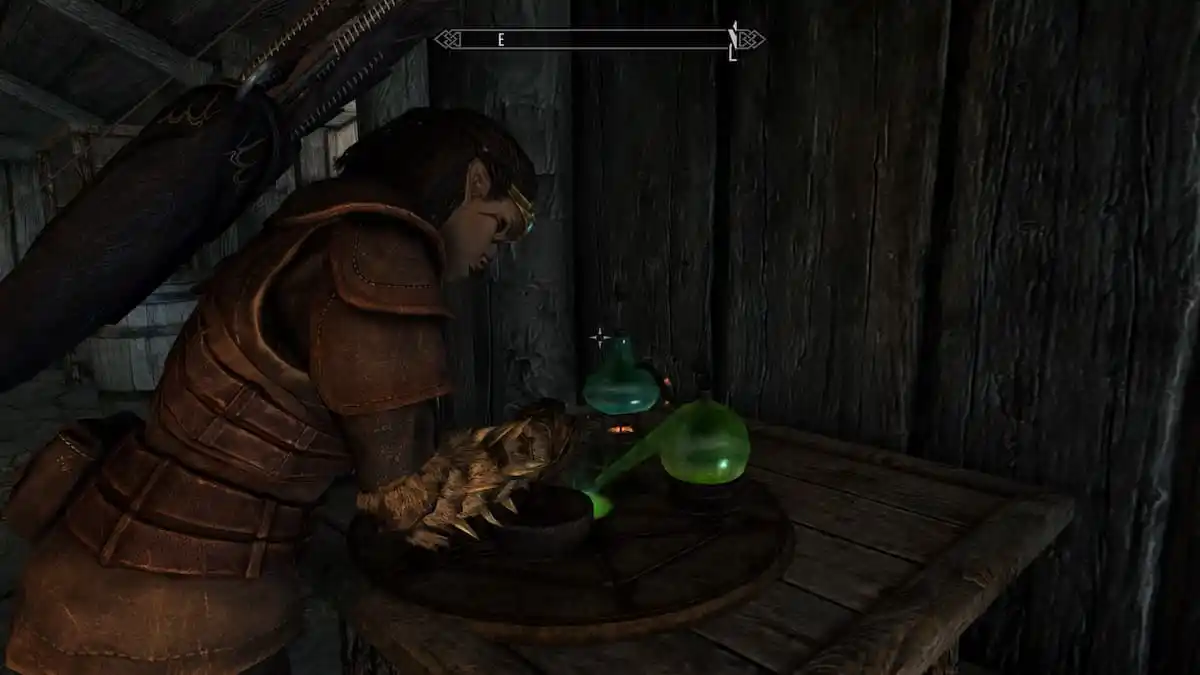Skyrim is a decently challenging experience by default. Understanding how difficulty works and choosing the proper setting according to your preference can drastically improve your experience. Here’s how difficulty affects gameplay, multipliers, and XP in Skyrim.
Skyrim Difficulty Guide: How to Choose a Difficulty for Your Playstyle
There are six difficulty modes in the game and each of them affects certain statistics differently. If you’re wondering what are the different Skyrim difficulty options and how they affect the game, here they are in detail:
- Novice: The player takes half as much damage and NPCs (both friendly and hostile) take twice as much damage.
- Apprentice: The player takes 25% less damage and NPCs take 50% more damage.
- Adept: Both the player and NPCs take the default amount of damage.
- Expert: The player takes 50% more damage and NPCs take 25% less damage.
- Master: The player takes twice as much damage and NPCs take 50% less damage.
- Legendary: The player takes three times as much damage and NPCs take 75% less damage.
So does changing the difficulty affect anything in Skyrim? Yes, you and both friendly and hostile NPCs take varying amounts of damage based on the difficulty. This is how Skyrim difficulty scaling works, including affecting XP gain. If you’re struggling in a fight or find it too easy, I suggest you change the difficulty level which you can do at any time, even in combat. Simply go into Settings and select your preferred difficulty under the Gameplay tab.
Is There a Benefit to Playing on Higher Difficulties in Skyrim?

In case you’re wondering do you level up faster on lower difficulties in Skyrim, difficulty does affect XP in Skyrim. Since I’m doing increased damage on lower difficulty levels due to NPCs taking more damage, I found that my weapon skills like One Handed or magic skills like Destruction level up faster. Increasing the difficulty has the opposite effect since enemies take less damage.
Likewise, armor skills gain experience faster on higher difficulty settings since NPCs do increased damage. The neat part here is that difficulty affects all NPCs, even friendly ones. I would highly recommend summon spells or bringing followers and companions on Expert and above since they’ll take less damage. I played a Conjuration mage on Legendary for a while and had an army of Atronach tanks.
The pros and cons of changing the difficulty in Skyrim to higher settings are as follows:
- Pros
- More armor skill XP.
- Tankier followers.
- Tankier summons.
- Cons
- You take more damage.
- Enemies take less damage.
- Less weapon and spell skill XP per hit.
I should point out that in the long run, you’ll still technically get more weapon and spell skill XP on higher difficulties since you’ll be spending more time in combat.
Best Mods to Modify Difficulty in Skyrim
Some of the best mods I use to tweak difficulty and make the game challenging and more immersive are:
- Wounds: Taking damage from weapons can leave debilitating effects that need to be healed.
- Deadly Dragons: Better dragon fights.
- Better Bandits: Improves the AI and gear of Bandits.
- Combat AI Overhaul: Drastically elevates combat so NPCs don’t feel like mindless drones.
- High Level Enemies: Introduces better late-game fights.
- AI Detection Overhaul: I think we all found the Sneak system cheesy where you can stand in front of NPCs with Sneak 90 and not be seen. This mod fixes that to improve immersion.
If you’re interested in more, here are some other great Skyrim mods I also use.

What’s the Best Skyrim Difficulty Option?
The best difficulty in Skyrim is the one that suits your playstyle, whether you like a gritty combat-oriented experience (Adept+) or a more narrative one focusing on story and exploration (Novice). If you enjoy combat, I would highly recommend you play on Adept or above. Expert is the sweet spot as you progress a bit and find better gear and spells. The game is drastically easier for ranged Sneak builds and in this case I recommend cranking it a bit for a challenge. All others should stick to Adept or Expert and increase to Master or Legendary if you seek a tougher challenge.
Why do My Skyrim Difficulty Options Keep Resetting to Novice?
This is a bug that can occur if you have an incompatible mod installed, like a faulty shader or other out-of-date mods. For example, this happened to me when I had Mod Organizer 2 installed and it was merely a display issue. The actual difficulty is that I’ve already set in my Mod Organizer profile. You can set your difficulty by:
- Opening Mod Organizer.
- Going to Tools and then Tool Plugins.
- Open the INI Editor.
- Select skyrimprefs.ini.
- Navigate to the [GamePlay] and change iDifficulty to your desired difficulty.
- The values are 0 to 5 for Novice to Legendary.
If this doesn’t work, the I would recommend checking out the Difficulty Persistence Fix mod.
That concludes my Skyrim difficulty guide. For more Skyrim tips, check out how to become a Vampire or how to become a Werewolf.







Published: Feb 6, 2024 01:28 pm